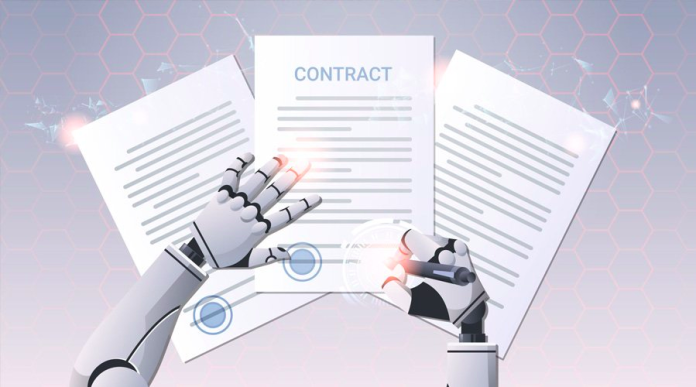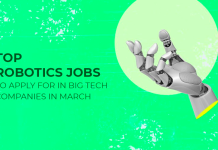AI is revolutionzing the contract management aspects of businesses for more efficiency
Professional works are already being sharpened by artificial intelligence (AI) in various industries. Advances in AI can be beneficial for contract management software systems, especially if contract intelligence engines based on a foundation of machine learning are given a healthy diet of relevant contract data.
It’s been estimated that inefficient contracting costs businesses 9% of the value of a deal, depending on the conditions. As a result, many businesses adopt solutions like SpotDraft to assist in contract management.
The biggest problem that businesses confront when it comes to contracts is the vast number of contracts they must keep track of. These contracts are often inconsistent and difficult to organize, maintain, and update. Since most companies don’t have a database of all the information in their contracts – let alone an effective means to extract it – there’s no easy way to evaluate complex outsourcing agreements or compare how a condition is worded across divisions.
Not only does it take a lot of labor to create, execute, and improve contracts, but it also takes a lot of workforce to draft, execute, and improve contracting processes and the transactions that these contracts regulate. New technical advancements such as artificial intelligence (AI) are now assisting businesses in overcoming many contracting issues.
Combining AI with a contract management system has transformed business opportunities by redefining the actual value of contracts buried for years in millions of files and folders. Unstructured contract documents can be converted into structured enterprise data using artificial intelligence.
AI in contract management can assist businesses in detecting business risks and opportunities; because AI understands contract language and clause meanings, it transforms contract management from a static document management system to a dynamic, strategy-making machine. Let’s look at some more factors in how AI is changing contract management.
Smart Authoring
By automatically detecting and organizing contracts, an AI-enabled Contract management system aids intelligent contract development. CMS uses Machine Learning algorithms to learn from historical contract track records, discover patterns, and suggest authorized, acceptable pre-defined keywords and contract clauses.
The context-based analysis is a critical element of an AI-enhanced CMS. This means, while drafting contracts, the CMS also finds the related conditions that should be utilized for specific contract types. For example, if the dealer is located outside the country and across borders, it will recommend including a currency fluctuation clause in the procurement contract.
Pattern Recognition
When hundreds of thousands of legal papers are supplied to a contract management system, manually tagging each clause for future processing can become tiresome. On the other hand, machine learning techniques can assist in identifying the clause’s name based on its contents.
With this trained model, you can now submit a document into a contract management program and have tags applied to it automatically. You can supply the correct label for a given text if the algorithm predicts that a clause was incorrectly named, and it should adapt itself after a few iterations of the clause and not repeat the same mistake.
Streamline Contracts
Contract managers should keep track of the time it takes for specific tasks to be done and which jobs are creating delays and lengthening cycle times to save time and money due to inefficient contract workflows. Contract management system using AI delivers task performance monitoring and intelligent process automation.
Contract managers can track how long it took staff to accomplish allocated tasks, encouraging accountability. Tasks can then be rapidly escalated to keep the contract lifecycle moving and improve timeliness.
Contract managers using AI can keep track of the days a specific contract has been in each phase of the contract lifecycle. It also provides concise visual representations of work data and reports.
As a result, restrictions in the workflow cycle can be quickly detected, allowing for eliminating ineffective contract lifecycle management techniques. Contract managers can move responsibilities and rotate task assignments based on their increased understanding of why their contracts are delayed.
Analytics and Insights
An AI-powered contract management solution gives businesses the insights they need to get the most out of their discussions. It can assist businesses in evaluating massive numbers of contracts and reporting on contractual data from the system throughout the contract database and across locations and languages.
User-defined dashboards can be produced as needed to report key performance indicators (KPI), service level guarantees (SLA), milestones, and other factors. It is now feasible to comprehend corporate payment responsibilities or identify all contracts subject to a given rule, such as required quality assurance or contract conditions. Increased contract visibility allows for better performance tracking, compliance, and obligation management.
Natural language processing is used by AI-enabled technologies to sift through documents, classify clauses, and highlight discrepancies between document versions. This allows the system to read contracts and flag any conditions or provisions that aren’t in the organization’s best interests. It can recommend alternative terms that reduce risk and protect the company.















